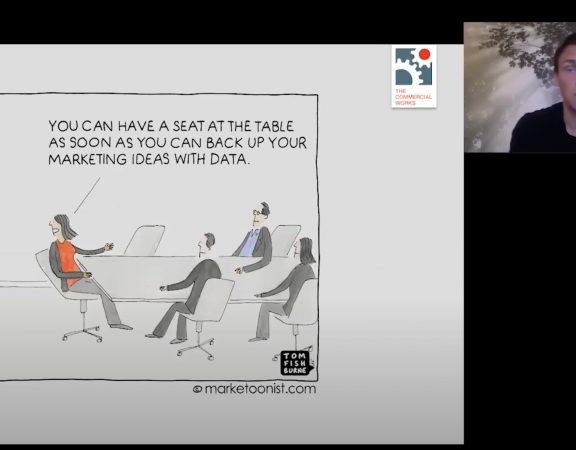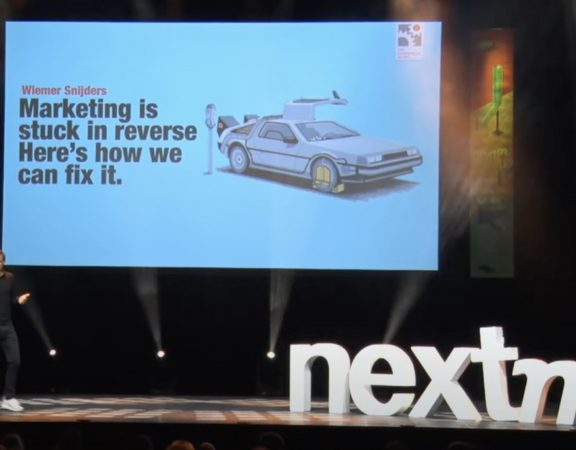The profession formerly known as marketing research (Robert Ossenbruggen)
Back in the days, marketing researchers researched the market. The profession was conveniently called ‘marketing research’. Today, insight professionals deliver insights and work in the ‘insights industry’. This name change suggests that over the last decade or so, marketing research has developed to such a degree that the term no longer covers what is done and delivered.
‘Insights’, it’s one of those terms you find in the commercial world that yields a wide variation of definitions. When you dig in, however, you’ll find three common ingredients:
- An insight is something surprising, something new,
- An insight gives an answer to the why-question
- An insight has a clear commercial implication
Given the above, an honest question would be: do insight professionals today, compared to several years back, deliver more new insights, are they better at answering the why-question and are they better in identifying the commercial implication? Personally, I think the answers to those questions are ‘no’, ‘no’ and ‘no’.
That is, however, not a problem in itself. Good research doesn’t necessarily mean something new is discovered. Think of tracking the sentiment of your customers or brand attributes. Most of the time nobody is in shock and awe when the results come in. But you can intervene when deemed necessary. Good research doesn’t necessarily answer the why question either. Think of a concept test where one idea clearly outperforms the others. Perhaps you can figure out the why in the next round in the NPD process. And finally, good research doesn’t necessarily mean the implications are immediately clear. There are plenty of situations where stakeholders need to thoroughly discuss what the results mean in terms of next steps. Complex questions seldom become instantly simple through research.
It does get problematic when numbers are delivered yet they are labelled as insights. I frequently plough through my client’s research reports and this is what is increasingly seen. Recently I stumbled upon a dashboard with campaign indicators on the most granular level titled ‘advanced insights’. I strongly believe we don’t do ourselves a favour with name games like this. Firstly, it looks unprofessional; like we can’t distinguish an aggregated datapoint from an insight. Secondly, it leads to conceptual inflation: the end client will increasingly expect to interpret and contextualize the alleged ‘insights’ herself. That’s one sure way to get stuck in the role of digit supplier.
The irony in all this, I believe, is that it is driven by the fear of not getting beyond the role of digit supplier. I think researchers themselves are afraid that other people associate ‘research’ with dullness and number fetishism. That researchers are a bit too eager to be that fresh, modern, and inspiring professional that deserves a seat at the table.
A chauffeur drives from A to B, regardless of whether he puts ‘logistics’ or ‘supply chain solutions’ on his truck. Likewise, regardless of the label you put on your business card, as an insight professional your core job is to capture and understand people’s behaviours, opinions, and preferences. We used to call that marketing research, without any shame. It seems that we have collectively forgotten that marketing research is an intelligent and challenging profession that requires a broad array of skills. And, more importantly, that it is an indispensable ingredient in the development of brands, products, and policies.
….I beg to differ (Simon Chadwick)
Robert van Ossenbruggen cites three ingredients as being common to the many definitions of insights: newness, answering the question ‘why?’ and having commercial applicability. He then goes on to assert that insights professionals today are no better at delivering any of these than when they were called marketing researchers. I beg to differ.
He then goes on to say that just being a ‘researcher’ is not such a bad thing and that we should not always be striving for new insights (citing trackers as an example); nor do we need necessarily to answer the question ‘why?’ or, for that matter, seek to provide or facilitate clear commercial implications from our work. Again, I beg to differ.
Senior management in over a third of the world’s major corporations also beg to differ.
A little bit of history may shed light on why. Nearly a century ago, when our profession was in its early years, the likes of Gallup, Roper, Nielsen and Starch were not just “researchers”. They were evidence-based consultants talking to top management about the implications for their businesses arising out of that evidence. It was only when research became increasingly industrialized that we started to focus more and more on the process of research – and indeed, in some circles, came to believe that we were supposed to be the impartial purveyors of truth, happy to leave actual insight and decision-making up to others.
As we were increasingly happy to be backroom workers, so too did research budgets come to be seen as cost line items, as opposed to investments in the business itself. And, as such, senior managements started increasingly to question the need to spend money on a function that did not appear to be benefiting the business in any meaningful way. It was then that they started demanding more. They did not want to sit through ‘on the one hand, on the other hand’ presentations lasting for hours. They wanted the nub of the story and demanded that it be directly related to the decisions that they needed to take. They needed to know that the function was having a positive impact on the business. Otherwise, what was the point of it all?
Today, approximately 30% of consumer insight departments are considered by their managements to be strategic partners and/or sources of competitive advantage. Jeffrey Hunter, one of the wisest and best researchers to work at General Mills, always used to search out research solutions that were not available to the company’s competition because he saw his job as providing competitive advantage. In departments such as his across the breadth of the land, insights professionals do uncover insights that are new, that answer the question why, and that have real commercial impact. In an age when the temptation is strong to say that all the answers will be provided by big data, AI and machine learning, this is more important than ever.
Clearly, there is much work still to be done in the other 70% of functions, especially those who still regard themselves as simply ‘marketing researchers’. But as long as they continue to regard themselves in this way, they will remain P&L line items and be among the first to be cut when times get hard. I don’t know about you, but that does not feel to me to be a very secure position.
We must and can be better than that – and we are. Our role today is not just that of researcher – we are partners, consultants and influencers. Why? Because we do place the customer at the centre of the organization, we do uncover the new, we do understand why and we can and do point out the commercial implications.
I beg to differ.
Source: Research World



